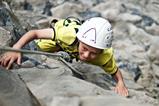When planning a visit and undertaking a risk assessment, teachers and EVCs can use STAGED to guide the thinking process. So, what does it mean and how can it help?

Planning an educational visit can be complex with so many things to remember: Have I booked the coach? Do we have the medical information? Have we got the passports?
This is then compounded by the need to undertake a risk assessment and ensure all significant eventualities are considered.
For educational visits, there are checklists, training, guidance and the support of colleagues to help, but you can also use the ‘STAGED’ method which offers a framework to support you when planning your school visits. The STAGED approach is an expansion on National Guidance’s ‘SAGE’ alternative.
When planning a visit and undertaking a risk assessment, you can use STAGED to guide your thinking. This is done best as a staff team and not in isolation.
What does STAGED stand for?
S is for staffing:
- Do you have sufficient staff?
- What are their competencies?
- What’s your staff contingency plan?
- Do they have any needs to be considered?
T is for transport:
- How are you travelling?
- Do you have qualified drivers?
- Are you stopping at services?
A is for activity:
- Is this provider-led and do they hold an LOtC Quality Badge?
- Are the staff appropriately qualified and trained if school-led?
- Do you have the right clothing and equipment?
- Are the learning outcomes clear?

G is for group:
- Has the behaviour, medical, educational, emotional etc. needs been considered?
- Group dynamics and rooming?
- Team development?
E is for environment:
- Is this urban or rural?
- Is this near water or in challenging terrain?
- Is it summer or winter?
D is for distance:
- How far are you from school and how accessible for the emergency services are you and therefore, how far are you from help?
These are just some considerations but not an exhaustive list, and as a team you should discuss, prepare and undertake the STAGED planning collaboratively to ensure the skills, knowledge and views of your colleagues have been taken into consideration.
The STAGED approach can also be adapted to become a risk assessment model, as there are hazards and control measures within each STAGED variable.
Teachers and EVCs can dive deeper into the STAGED approach, used on EVOLVE Advice’s training courses at www.evolveadvice.co.uk/courses.
















No comments yet